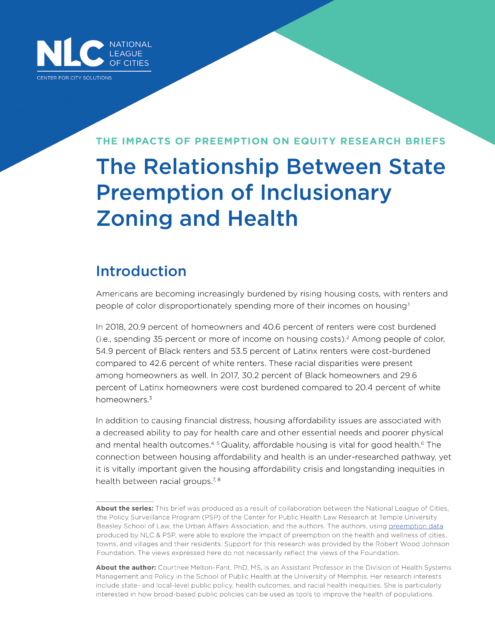A lack of affordable housing has contributed to an increase in the number of cost-burdened households, particularly among renters. Inclusionary zoning (IZ) policies are one policy tool used by local governments, particularly in cities with high rates of development and high housing costs, to increase the share of affordable housing.
Some states restrict local governments from using this tool. This brief combines publicly available data along with the Policy Surveillance Program preemption data, supported by the National League of Cities and the Robert Wood Johnson Foundation, to examine the relationship between state preemption of inclusionary zoning policies and health outcomes.

